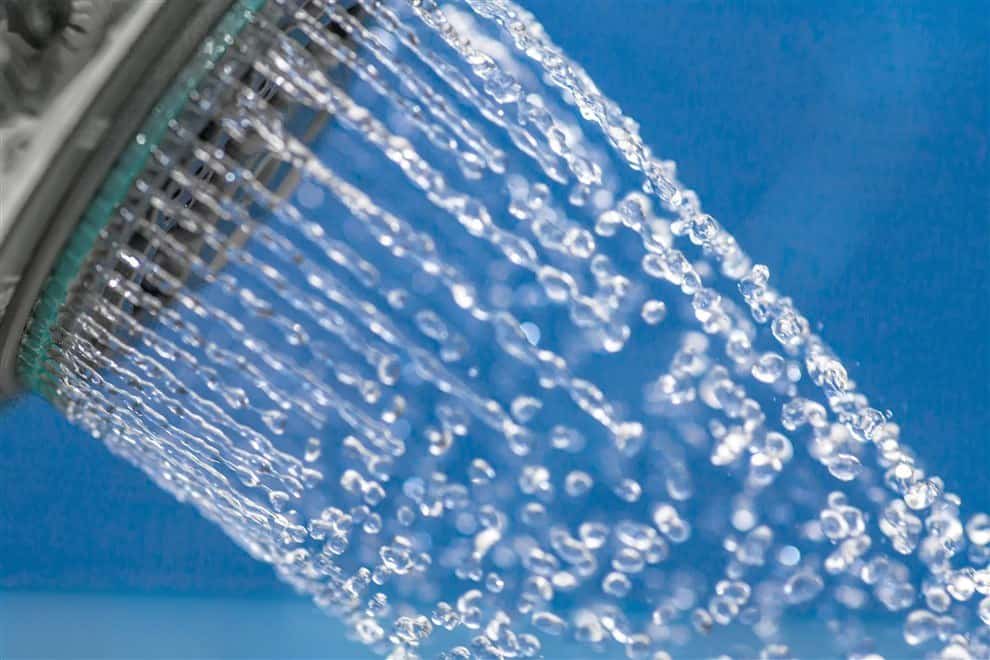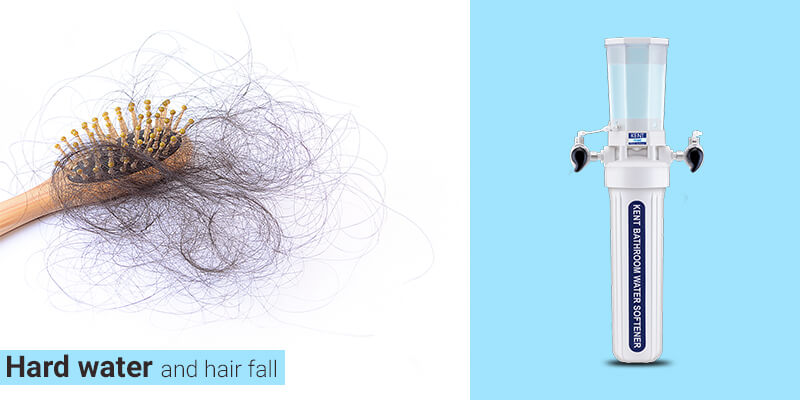Table Of Content
- AquaBliss Revitalizing Shower Filter
- Best Hard Water Shampoo For Itchy Scalps
- A Scientific Case Study on Hard Water Hair – Can Hard Water Damage Hair?
- Is Hard Water Bad For Your Hair? Experts Explain The Negative Effects
- Best Hard Water Shampoo For Heat-Damaged Hair
- Hard Water Hair Damage is Real! Here’s How to Deal With It
- Can hard water cause hair to change color?

Instead of bottled water, you can also use water from filter jug, and that may not be so much plastic waste. The Shop TODAY editors and writers search the internet to find the best products out there. We interview expert sources and use our own personal experiences with the product and brand to make shopping easier for our readers. Wet your hair, take a small amount of the baking soda paste, and gently massage it into your scalp. You can also add a few drops of essential oil (like tea tree against dandruff).
AquaBliss Revitalizing Shower Filter
Instead, the minerals are deposited onto your hair and scalp with every shower. But that’s the price I guess I’ll have to pay to live in the city of brotherly love. Below are some of the best shampoos for hard water, no matter your hair type or texture.
Best Hard Water Shampoo For Itchy Scalps
“Another indication is the presence of residue or soap scum, especially noticeable in areas like the sink or bathtub, which can signal hard water’s effect on the skin and surfaces,” says Krasnaya. When you’re taking dishes and glasses out of the dishwater, examine them for any spots. These spots are signs of mineral deposits like calcium carbonate and indicate a hard water issue. Hard water can cause long-term damage to your hair’s natural growth. This damage is especially likely if you have eczema or psoriasis, as you are more susceptible to hair loss, preventing a healthy growth process for your hair.
A Scientific Case Study on Hard Water Hair – Can Hard Water Damage Hair?
If you’ve gone through all that and still are battling hair issues, it may be time to look at your water. Hard water can cause hair damage, and you may not even know you have it. Choose a mild shampoo (ideally one that’s sulfate-free), and massage it gently into your scalp.
Is Hard Water Bad For Your Hair? Experts Explain The Negative Effects
How Bad Is Hard Water for Your Skin? We Asked the Pros - Real Simple
How Bad Is Hard Water for Your Skin? We Asked the Pros.
Posted: Wed, 23 Aug 2023 07:00:00 GMT [source]
“I typically see it a lot after summer break and my blonde clients return to the salon,” says New York City-based hair colorist and salon owner, Jenna Perry. That’s when you know they were spending time in a place with hard water.” The dulling isn’t just limited to blondes. Brunettes can get darker or go brassy due to mineral buildup, says Bodt, while the lack of vibrancy is especially obvious on redheads, says Perry.

Shehnaz researches and tests new hair care trends and publishes her insights here. To ensure your hair is less affected by the water’s hardness, focus on the scalp. Some may use carbon filters, and some use more advanced technology like oxidation-reduction (redox) filters to create an ionic exchange that neutralizes the heavy minerals. Alkalinity on the scalp can also cause the scalp to overproduce sebum to fight off bad bacteria, making the hair feel greasier than usual. Tangles and knots make the hair difficult to pull apart, brush, and style after a shower. Where the area has high levels of limestone, chalk, or dolomite rocks, rainwater flows through them, collecting dissolved deposits of limestone, chalk, and gypsum that are made up of calcium, carbonates, and sulfates.
Showerhead filter

Add that to the fact that hard water can strip the natural oils from your hair, and you end up with dry, rough, and brittle hair, says Dr. Rubin. “The rough texture caused by hard water can make hair more susceptible to breakage, as it becomes less flexible and resilient,” says Hope Mitchell, MD, a board-certified dermatologist in Perrysburg, Ohio. Alternate between these two shampoos to keep your hair and scalp clean and healthy. You can use a chelating shampoo once every 7 – 10 days with a clarifying shampoo in between uses. This will help you get rid of mineral buildup, maintain healthy hair growth, and prevent dandruff too.
A cost-effective alternative is to purchase a water softener shower head. Should you already have a showerhead that you love, pair it with this add-on filter from AquaBliss. Just unscrew your showerhead, screw this filter to the pipe that comes out of the wall, and then attach the head onto the other end of the filter. You’ll notice an immediate difference in your hair and skin after just one use.
By identifying the potential signs of hard water on hair, you can implement preventative solutions to protect the future of your hair’s health. The acidity of vinegar works to remove cal build up from your hair. It also balances the pH of your hair, smoothes down the cuticles, and leaves your hair feeling soft and silky.
The latter two are added to water at safe levels determined by the Environmental Protection Agency to kill parasites, bacteria, and viruses that could be harmful. While these are great for protecting your guts against nasty stuff like salmonella, the reality is, that none of these elements are great for your hair or your scalp. Concentrate your shampoo on your scalp and massage it in, making sure that the suds don’t reach the length of your hair.
How hard water affects your hair: Tips for frizz-free hair - The Times of India
How hard water affects your hair: Tips for frizz-free hair.
Posted: Mon, 15 Jan 2024 08:00:00 GMT [source]
But a chlorine shower filter won’t entirely eliminate your hair problems if it can’t remove hardness minerals. While hard water has not been linked directly to hair elasticity, experts say it can contribute to issues that increase the likelihood of hair loss. This is especially true considering hard water makes it harder for moisture to penetrate the hair, and dry hair leads to brittleness and breakage. The mineral buildup can also weigh down hair at the scalp, giving the impression of flatter, thinner hair. The good news is that there are many management solutions available if you're dealing with the effects of hard water on skin and hair, Dunphy explains. The most comprehensive option is to get a whole-house water softener or salt-free water conditioner installed.
From personal experience, after my move across the Atlantic, I noticed a lot less volume and texture in my hair and my roots got greasier, faster. Clarifying shampoos typically use sodium lauryl sulfate to get a deep clean. This is a popular choice because it works well in both hard and soft water and is easily rinsed out of the hair. Sodium lauryl sulfate is a good cleanser, but it can be harsh on hair and cause dyes to fade. Deep cleaning or clarifying shampoos should only be used about once a week or as needed to remove buildup.

No comments:
Post a Comment